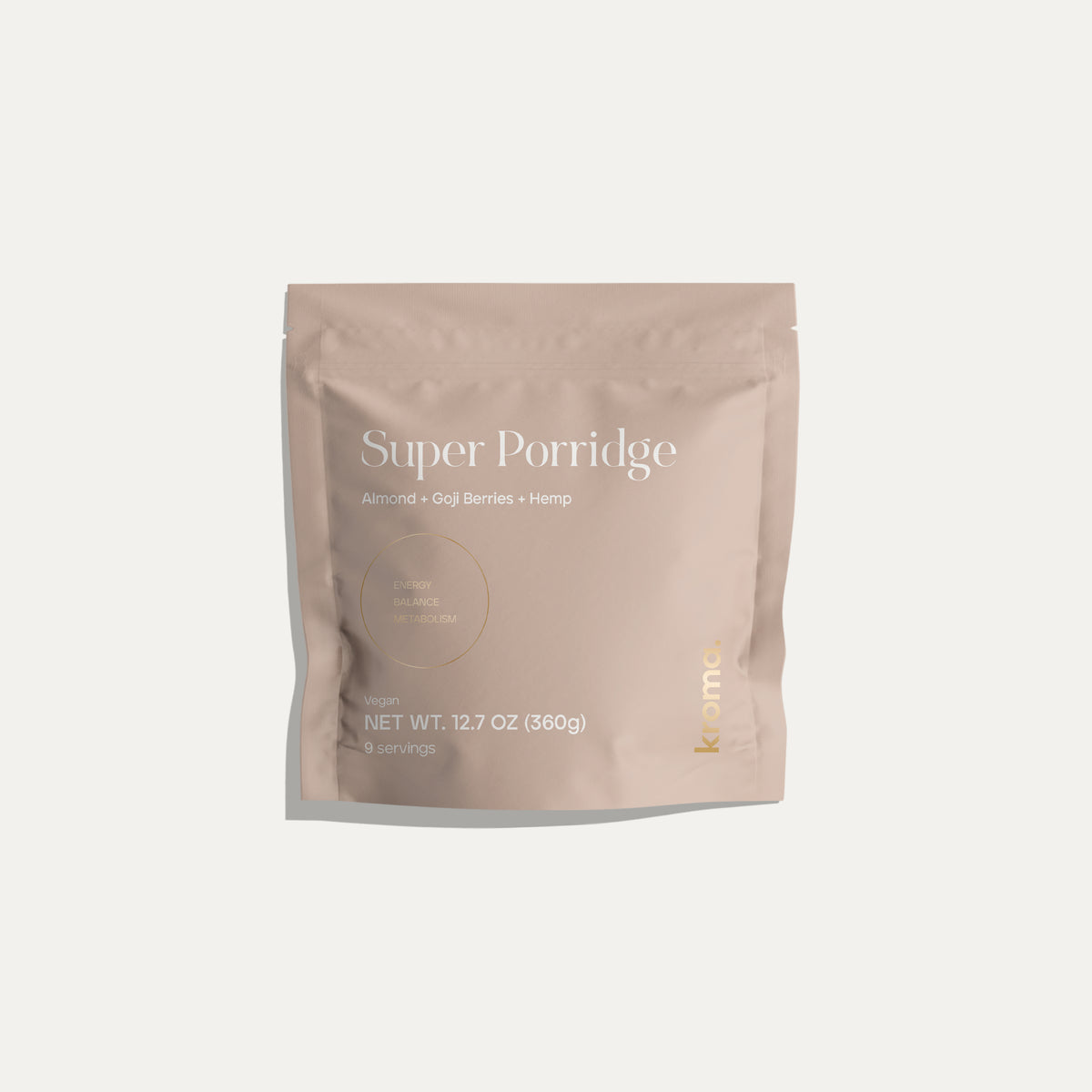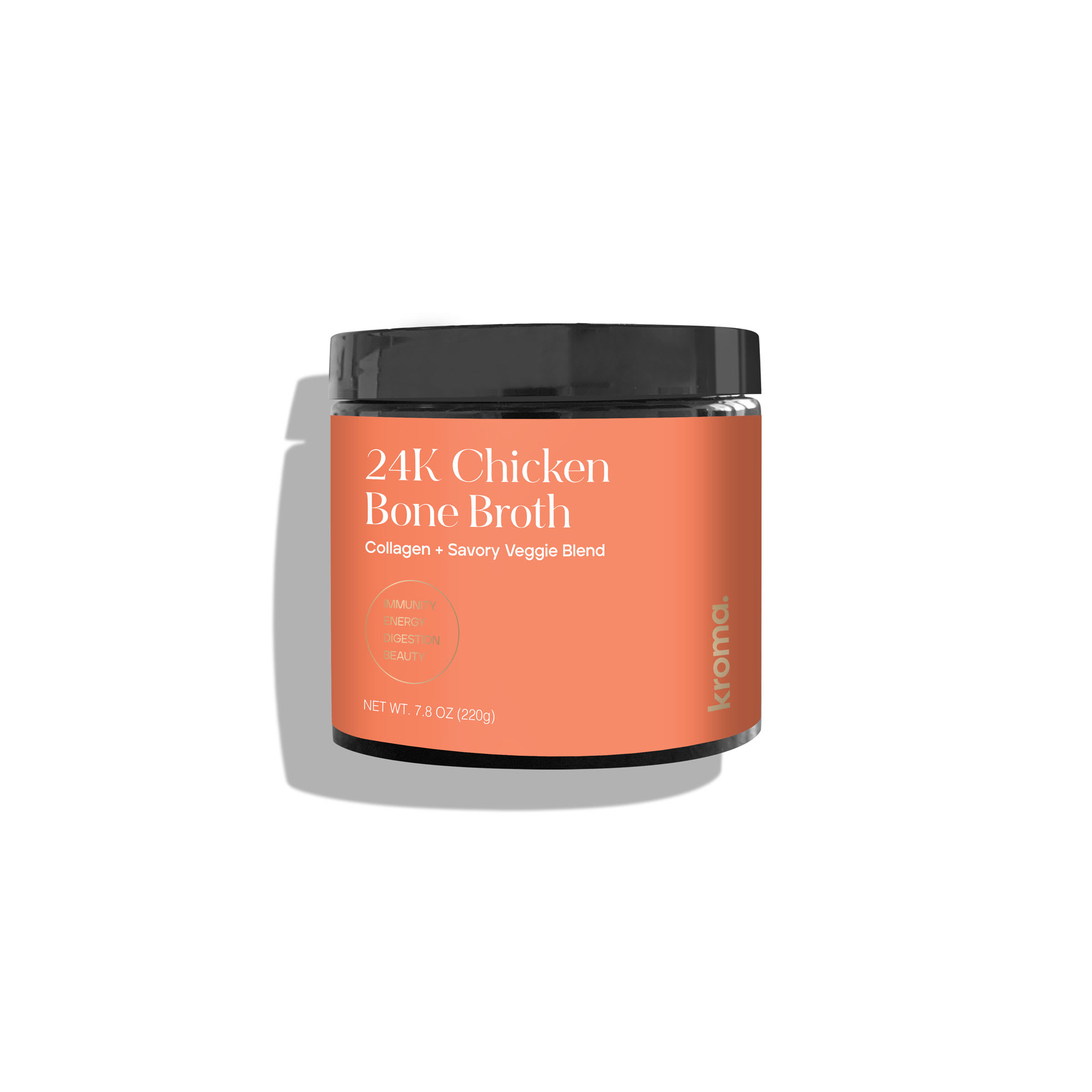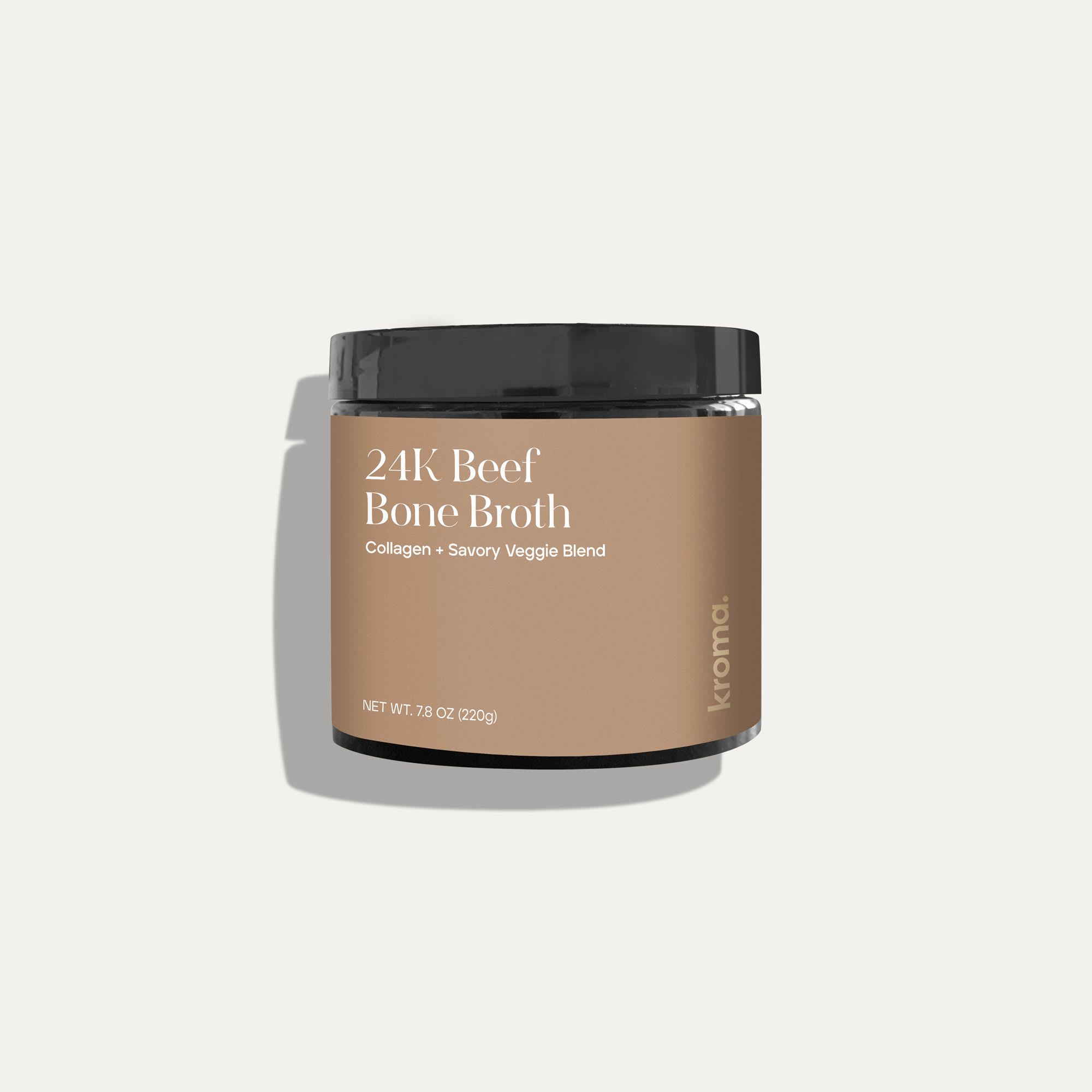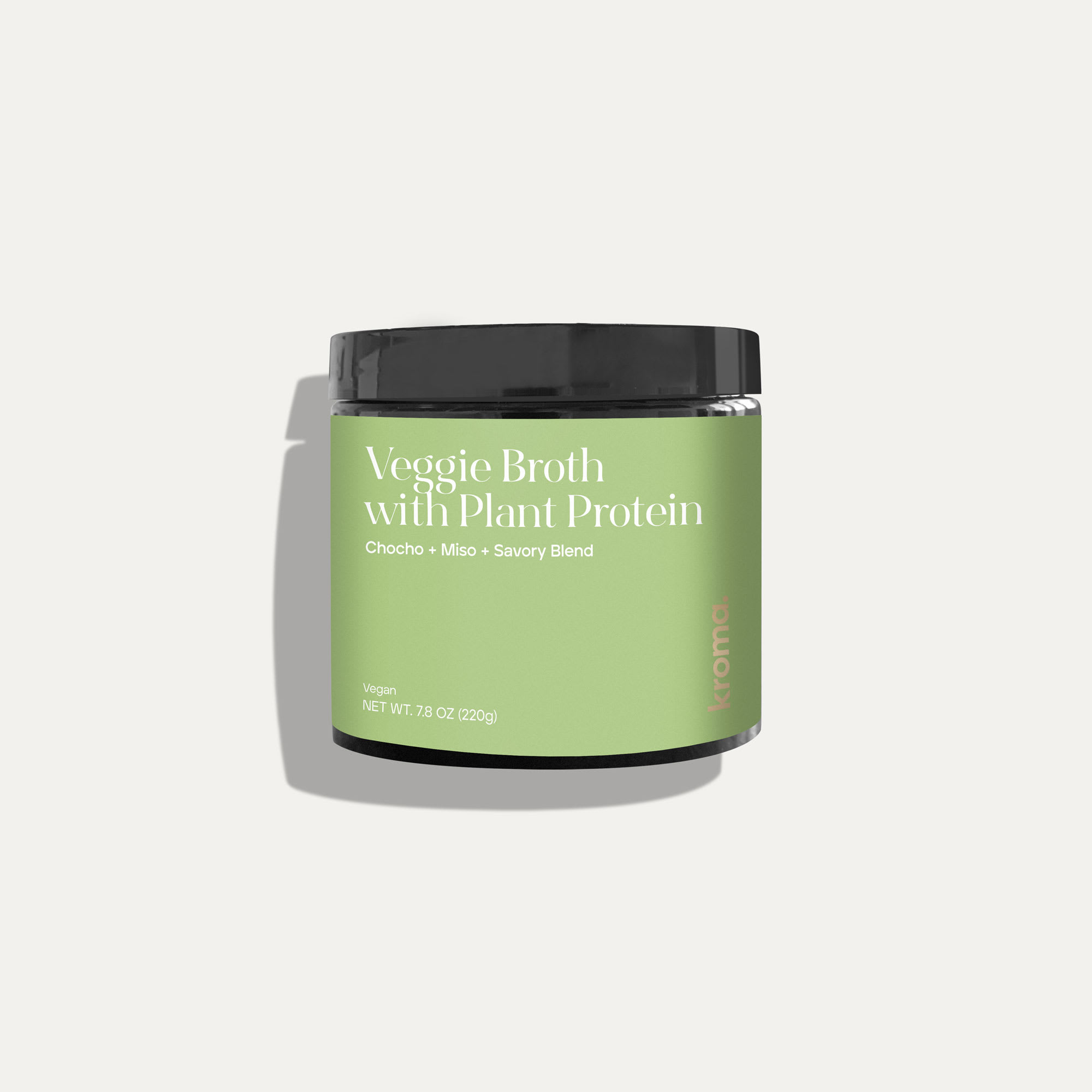How To Ease Your Digestion

The digestive system is a remarkable machine that efficiently processes food to provide us with the necessary nutrients and energy for daily activities. However, certain dietary and lifestyle choices can irritate the digestive system, leading to various health problems and leaving us feeling drained.
At Kroma Wellness, we believe in the healing power of food and the importance of supporting our gut microbiome with nutritious superfoods to prevent digestive health issues. In this article, we explore the significance of giving your digestion a break, and how dietary choices, intermittent fasting, and sleep play a crucial role in maintaining gut health.
What Are Some of the Health Issues Associated With Gut Problems?
Gastrointestinal diseases (diseases that affect our digestive tract) come in many different forms. Gastrointestinal diseases, which affect the digestive tract, come in various forms. Most individuals with gut problems suffer from functional gastrointestinal diseases, which cause a range of symptoms but do not lead to structural abnormalities in the gastrointestinal tract. These diseases are usually treatable through changes in diet and lifestyle.
Untreated gut problems can have a domino effect on our body's natural systems, leading to further health issues such as restless sleep. These health problems often share similar symptoms, such as stomach pain and nausea, and can be uncomfortable, distracting, and in some cases, debilitating. Some of the health problems caused by an unhealthy gut include:
Constipation & Diarrhea
Constipation, characterized by infrequent and difficult bowel movements, and diarrhea, marked by persistent loose bowel movements, are common indicators of a troubled gut. Luckily, both of these health issues can be alleviated with the proper dietary choices.
Increasing water and fiber intake can often alleviate constipation, while cutting out dairy and eating bland foods can calm the digestive tract during diarrhea. If left untreated, these health problems can negatively impact sleep and energy levels, hindering the gut's ability to heal, making it crucial to address them early.
Gas & Debloating
Bloating is caused by excess gas in the stomach and intestines, which is formed through the fermentation of food in the digestive tract. This gas can be painful and uncomfortable, and certain foods such as dairy products and sugars are more prone to fermentation and often the main culprits of bloating. Avoiding these foods is a crucial step in reducing bloating and gas issues.
Acid Reflux (GERD)
Acid reflux occurs when food and stomach acid are pushed up from the stomach into the esophagus. While some people may not be able to completely cure acid reflux, the symptoms can be reduced by making the right food and drink choices. Avoiding spicy foods, citruses, and carbonated beverages are some of the ways to alleviate acid reflux.
Irritable Bowel Syndrome (IBS)
Irritable bowel syndrome (IBS) is caused by abnormal contractions of the colon muscle, often triggered by dietary choices and stress. IBS can result in a range of painful symptoms, including bloating, fatigue, stress, and joint pain. To soothe IBS flares, it's recommended to avoid caffeine and increase fiber-rich foods.
With all these potential health issues linked to gut problems, it's clear why giving your digestion a break is essential. Not only does it help alleviate unpleasant gut symptoms, but it also supports healthier and more efficient digestion.
4 Benefits of Giving Your Digestion a Break
Better Sleep
Giving your digestion a break can bring several benefits, such as reducing unpleasant gut symptoms and promoting healthier and more efficient digestion. By making the right food and drink choices, you can take control of your gut health and feel better overall.
Elevated Energy
Improving sleep can boost energy levels, but reducing digestive discomfort and gastrointestinal diseases can help your body focus on providing you with energy. When your body isn't using all its energy to combat symptoms like diarrhea and stomach pain, it can redirect its energy towards more productive activities.
Strengthened Immune System
Giving your digestion a break can benefit your immune system in two ways. Firstly, your body spends less time digesting food, allowing it to focus on building the immune system and fighting off diseases. Secondly, a balanced gut microbiome helps protect against harmful bacteria, viruses, and fungi.
A Sense of Total Well-Being
No one likes feeling bloated, gassy, or tired, and being mindful of your gut and the food you consume can help prevent these issues from occurring. This can lead to a greater peace of mind and a sense of overall well-being. If you're looking for a convenient and nutritious way to support a healthy gut, Kroma's 5-Day Lifestyle Reset is the perfect solution. With pre-selected superfoods designed for healthy digestion, Kroma's Reset does the hard work for you, allowing you to relax and enjoy the benefits of a revitalized gut.
How Intermittent Fasting Supports Digestion
Adhering to a fasting schedule helps restore a natural rhythm to your digestion, giving your digestive system time to rest and recharge. While sleep is crucial for gut rest, continuing to eat up until bedtime forces your digestive system to work continuously. We recommend fasting for at least 12-16 hours, starting after dinner (no later than 7 PM) and ending during breakfast the next day (between 6-10 AM).
By giving your digestion a break, your body can focus more energy on other crucial areas such as the immune system, muscles, hair, skin, and nails. Fasting can also reduce gut inflammation, promoting healthier digestion and alleviating the symptoms of digestive health issues.
The Roles of Sleep and Stress in Digestion
Sleep is crucial for digestive rest, and lack of sleep can lead to poor digestion and further sleep problems, creating a vicious cycle. Sleep deprivation can also trigger cravings for unhealthy foods, which can further irritate the gut and cause digestive issues.
Stress also plays a significant role in digestive health. Digestive problems can increase stress, and stress can impact digestive issues. When your body is stressed, it releases the stress hormone cortisol, which redirects all its energy towards survival, causing digestion to slow and leading to bloating, constipation, and other problems. Stress may also cause cravings for sugary, salty, and fatty foods, exacerbating gut problems.
11 Foods That Help Digestion
Foods that ease digestion generally fall into two categories: prebiotics and probiotics. Prebiotics act as fuel for the healthy bacteria in our gut, and they are typically high in dietary fiber, like vegetables, legumes, and fruits. Probiotics (fermented foods and supplements) help maintain a healthy gut microbiome and improve an imbalanced gut microbiome. Water is also crucial for maintaining healthy digestion, and other foods like spices, herbs, and broths also support digestive health. Here are some easy-to-incorporate foods that ease digestion:
Prebiotic Foods
Dandelion Greens
These dandelion greens are a great source of dietary fiber and can be easily added to a salad with other high-fiber vegetables or soups and stews. Plus, they can also be added to your meals on colder days.
Bananas
Bananas are gentle on the gut and often recommended for those suffering from nausea. They can be enjoyed on their own or used in recipes like smoothies and naturally sweetened breads.
Apples
Apples offer similar digestive benefits as bananas but have slightly more fiber and come in a variety of flavors. They can be eaten plain or used in foods like salads and snack bars.
Flaxseeds & Gluten-Free Whole Oats
Eating flaxseeds and whole oats increases fiber intake and can be incorporated into breakfast and snack foods like bread and muffins. Try Kroma's Super Porridge, which combines whole oats, flaxseeds, cinnamon, and plant protein for a nourishing breakfast.
Probiotic Foods
Yogurt
Yogurt is a beneficial snack for restoring gut health. The bacteria in yogurt works with the bacteria in your gut to create a healthier microbiome. Yogurt comes in many delicious flavors and can be topped with ingredients like bananas.
Kimchi
Kimchi is an excellent way to incorporate both prebiotics and probiotics. It uses prebiotic vegetables like garlic and onion and can be spiced and herbed to enhance its flavor and gut-soothing properties.
Miso
Miso, a traditional Japanese seasoning made from fermented soybeans, is a great source of probiotics. It's used in various recipes and can be found in Kroma's Veggie Broth with Plant Protein, which also includes onions, garlic, and turmeric.
Spices and Herbs
Ginger
Ginger promotes gastrointestinal mobility, helping food move quickly through the digestive tract and preventing fermentation-related gastrointestinal pain caused by bloating, gas, and constipation. Ginger can be added to teas, smoothies, and pastries.
Turmeric
With its antioxidant and anti-inflammatory properties, turmeric is essential for promoting gut health. It is commonly used to treat bloating, acid reflux, and gas and can be added to soups, smoothies, and teas.
Cinnamon
Cinnamon is anti-inflammatory and antimicrobial, fighting off harmful bacteria in the gut. As a warming spice, cinnamon can soothe an upset stomach and be added to desserts, porridge, and yogurt.
Bone Broths
Bone broths use the most vitamin-rich and supportive parts of bones, vegetables, and select spices to become a great source of nutrients for healthy digestion, including iron, vitamin K, vitamin A, and collagen. These nutrients help strengthen the gut and calm gut irritation and sensitivity.
Don’t have time to make your both broth at home? Try Kroma's 24K Chicken Bone Broth or 24K Beef Bone Broth for a convenient source of vitamins and minerals to nourish and strengthen your gut!
Harmful Foods for Your Gut
Dairy Products
Many people struggle to digest dairy products, as they are susceptible to fermentation in the stomach, causing bloating, gas, and even diarrhea. For those with digestive problems, it's best to avoid dairy-based products like milk and cheese.
Alcohol
Alcohol can lead to heartburn and diarrhea, as it is difficult for the body to digest and offers no nutritional benefits. To ensure the gut gets the rest it needs, limit alcohol consumption to moderate amounts.
Fatty, Fried, and Sugary Foods
These unhealthy foods are challenging to digest and take longer to process, leaving little room for the digestive system to take a break. These fatty and fried foods can cause heartburn, bloating, gas, and bowel issues.
GMO & Processed Foods
Compared to simpler and leaner foods, processed foods are more challenging to digest and keep the gut working nonstop. GMO foods can also be allergens for some and reduce digestive enzymes essential for healthy digestion.
Gluten
Gluten is a common allergen that causes inflammation in the gut and weakens the stomach lining over time, leading to slow and difficult digestion. To protect gut health, consider switching to gluten-free options in your meals.
Other Common Allergens
Besides dairy and gluten, other common allergens include eggs, soy, peanuts, tree nuts, shellfish, and fish. All of these allergens can cause digestive problems, from stomach pain to acid reflux. If you're unsure what's causing your gut issues, try avoiding these foods.
The Bottom Line on Digestive Health
Our gut and digestion play a crucial role in our overall well-being. To power through the day and achieve wellness goals, it's important to nourish and fortify the gut with nutritious superfoods that allow for refreshing digestion.
At Kroma Wellness, we believe in supporting the gut with superfoods that both nourish and fortify. Our 5-Day Lifestyle Reset is filled with prebiotic- and probiotic-rich foods like whole oats, miso, and garlic, making it easy to incorporate delicious, nutritious superfoods into your daily routine. Experience the benefits of a rejuvenated gut with our Reset, which is not a cleanse, but instead, a way to add delicious superfood nutrition to your life.
The 10 Best Prebiotic Foods for IBD | UMass Chan
Prebiotic Diet FAQs | Monash University Department of Gastroenterology
Dietary fiber: Essential for a healthy diet | Mayo Clinic
How to get more probiotics | Harvard Health
Gastrointestinal Diseases: Symptoms, Treatment & Causes | Cleveland Clinic
Digestive diseases: MedlinePlus Medical Encyclopedia | MedlinePlus
Signs of irritable bowel syndrome (IBS): Pain, fatigue, and more | MedicalNewsToday
Stress and The Sensitive Gut | Harvard Health Publishing
Exactly How Intermittent Fasting Can Help You Achieve A Healthy Gut | Dr. Will Cole
The impact of sleep deprivation on food desire in the human brain | PubMed
How Stress Can Make You Eat More — Or Not At All | Cleveland Clinic
5 Foods to Avoid When Digestive Troubles Arise | Cleveland Clinic
Study shows potential dangers of sweeteners | EurekAlert!
Common Causes of Chronic Diarrhea | IFFGD





